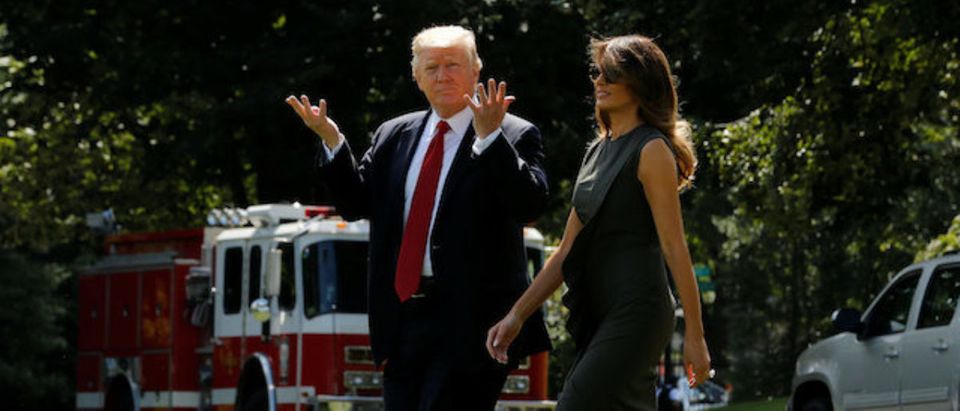President Donald Trump’s continued resistance to his own party and recent deal with Democrats led both the Associated Press and The New York Times to publish articles Saturday suggesting Trump is a president independent of the two major parties.
“Although elected as a Republican last year, Mr. Trump has shown in the nearly eight months in office that he is, in many ways, the first independent to hold the presidency since the advent of the current two-party system around the time of the Civil War,” the Times’ Peter Baker wrote. The AP article noted, “A president who spent months catering to the Republican conservative wing now appears unbound by ideology and untethered by party allegiances.”
The president was reportedly happy with his deal with Democratic Congressional leadership on a short-term debt ceiling extension that provided billions of dollars for Hurricane Harvey relief efforts. White House press secretary Sarah Huckabee Sanders said at a press briefing Friday, “I think he’s going to continue to work with whoever is interested in moving the ball forward to help the American people.” (RELATED: How Trump Caved To Dems Over Debt Ceiling, Govt. Funding)
“I think the biggest message is that we’re a lot less focused on what makes Congress happy, and what makes Americans better and stronger,” Sanders added. The deal with the Democrats came after weeks of repeated attacks on Republicans including a tweet in which Trump seemed to embrace a primary challenge against an incumbent GOP senator.
The president was a registered Democrat during the George W. Bush presidency, has a history of donating to Democrats, and flirted with a presidential run in 2000 as part of the Reform Party.
When it comes to policy, many of the ideas pushed by the White House do fall within Republican Party lines. The White House’s tax plan is largely accepted by the GOP as is the president’s education policy, climate policy, and entitlement policy.
However, on issues such as trade, foreign policy, infrastructure, and immigration, Trump has largely charted his own course. The immigration plan Trump touted on the campaign trail was much more extreme than what many Republican lawmakers support, as Trump called for the deportation of all 11 million or so illegal immigrants in the nation.
The president is now calling on Congress to pass an amnesty for beneficiaries of the Deferred Action for Childhood Arrivals program. Still, Trump’s embrace of legislation like the Raise Act, which would cut legal immigration by half over ten years, is a departure from a GOP that has been fine with current levels of immigration.
On trade, Trump’s backing out of the Trans Pacific Partnership and initiation of North American Free Trade Agreement (NAFTA) renegotiations are both departures from the GOP’s support of free trade. “While Obama continues his pro-trade talk, his anti-trade walk is killing jobs,” the official GOP Twitter account wrote in 2010.
Trump’s general war-weariness also puts him at odds with the party typically seen as the most hawkish.
The president entered his presidency already at war with “the swamp” and this has likely made it more difficult for him to become one with the GOP. “I think Mitch McConnell, and to a degree, Paul Ryan. They do not want Donald Trump’s populist, economic nationalist agenda to be implemented,” former White House chief strategist Steve Bannon said in a recent interview.


